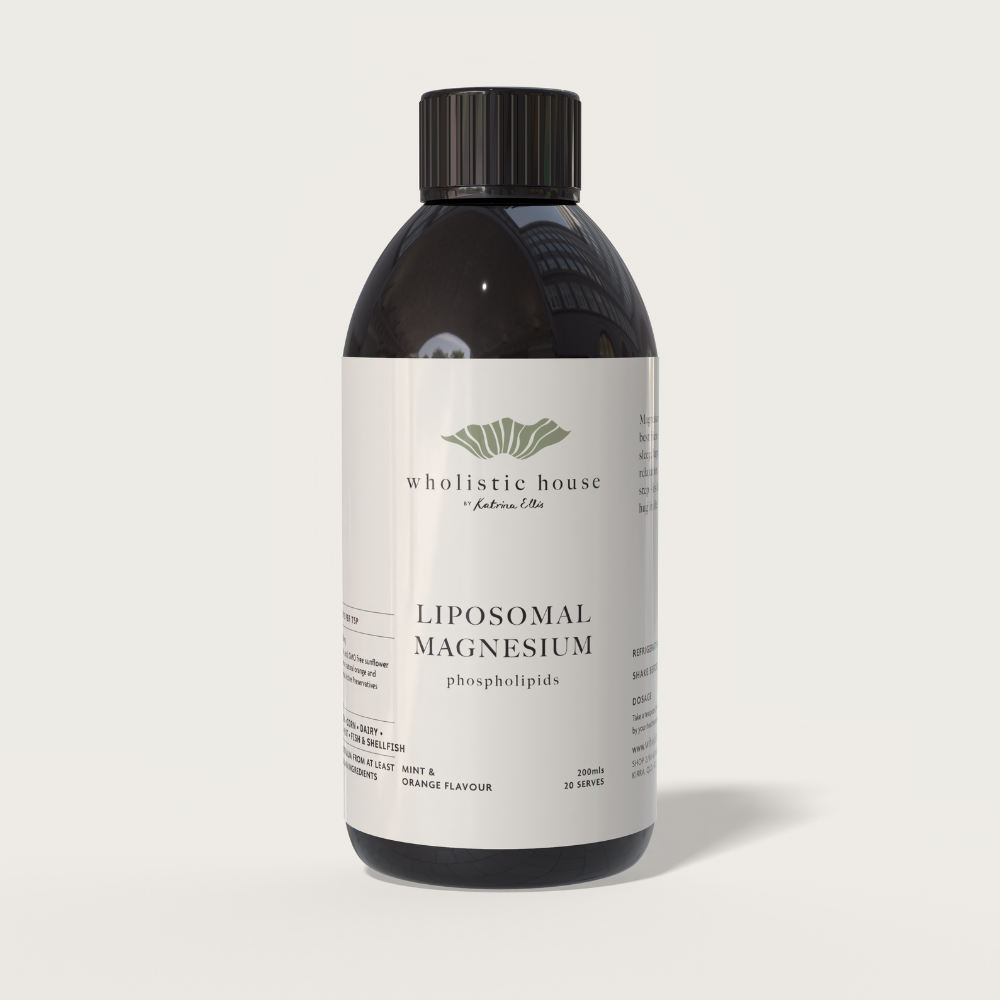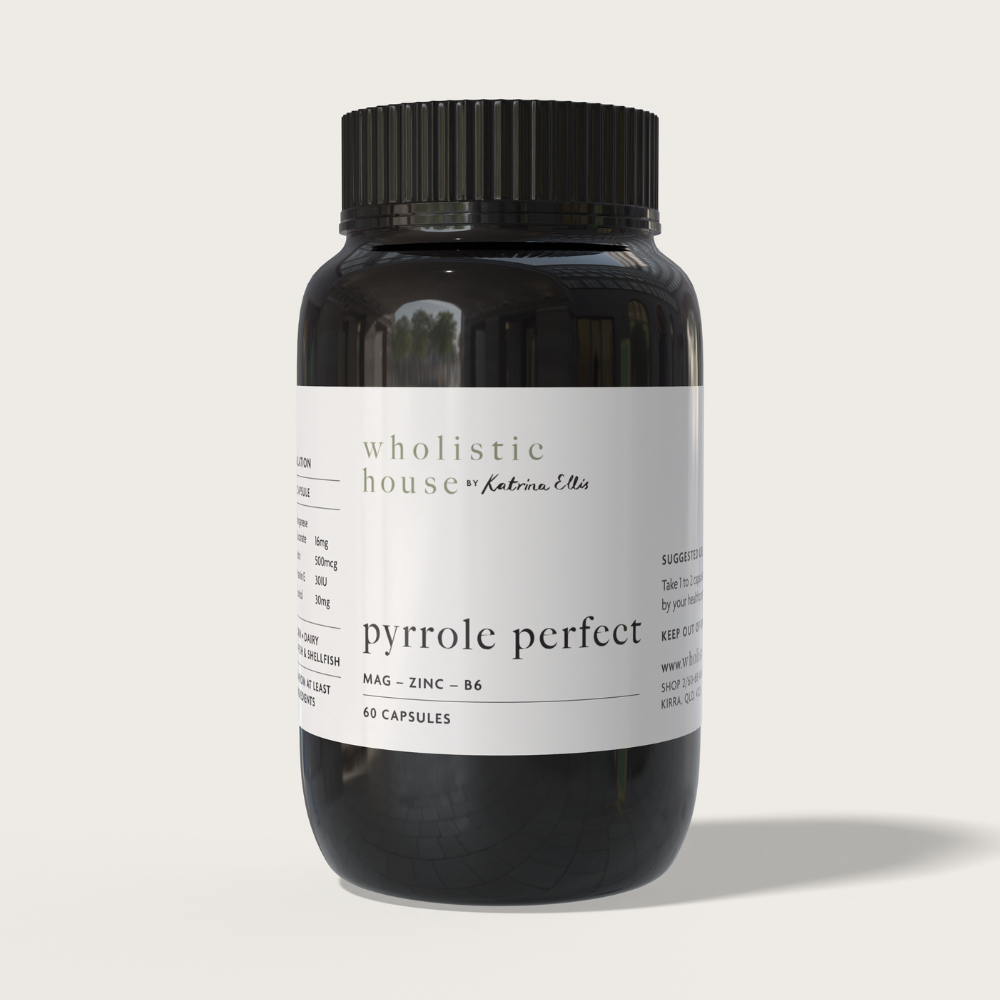
Stress - The Silent Assassin
1 to 10 indicates a mild problem.
11 to 20 indicates a moderate problem
21 to 34 indicates a severe problem
Over 35 indicates a chronic issue
0 = Never
1 = Rarely
2 = On occasion
3 = Frequently
4 = Almost always
5 = Always
□ Do you feel fatigued, lethargic or exhausted?
□ Do you suffer from tension headaches?
□ Do you find that your mind is running over the day's problems?
□ Are you finding it difficult to fall to sleep?
□ Are you waking up in the middle of the night?
□ Do you experience muscle tension in the neck and shoulder area?
□ Do you find it difficult to lose or gain weight?
□ Do you suffer from a rapid heartbeat or heart palpitations?
□ Do you feel shaky if you’re hungry?
□ Do you crave coffee or energy drinks?
□ Are you craving sugar or carbohydrates?
□ Are you craving salty or junk foods?
□ Do you feel nauseous during the day?
□ Do you lose your patience easily?
□ Do you suffer from a nervous stomach?
□ If you worry, do you need to go to the bathroom?
□ If stressed, do you suffer from constipation?
□ Do you have dark rings under your eyes?
□ Are you picking up more than three colds per year
□ Are you having vivid or senseless dreams?
Short term stress is natural, however long-term or chronic stress is unnatural and unhealthy for the human body. When we feel stressed, we release stress hormones like cortisol and adrenaline from the adrenal glands. However, if these stress hormones are released regularly, they begin to cause all kinds of health problems including:
- Fatigue and exhaustion
- Feeling tired yet wired
- Nervousness and anxiety
- Weak memory and poor concentration
- Headaches
- Hair loss or wiry hair
- Insomnia
- Depression
- Neck or back pain
- Irritability
- Weight loss or gain
- Heart palpitations
- IBS symptoms
- Food intolerances
- Hormonal imbalance
- Nausea and so much more.
When stress doesn’t stop and continues as a regular part of life it can then result in more serious conditions like:
- High Cholesterol
- High Blood Pressure
- Heart Disease
- Heart Attacks or Strokes
- Hypoglycemia and Diabetes
- Irritable bowel syndrome, Colitis and Ulcers
- Autoimmunity
- Chronic Fatigue Syndrome
- And even CANCER…
A constant exposure to stress or an inability to cope with this over a long period of time can lead to serious health problems. It is important to learn how to cope with the potentially damaging effects of stress on our body and mind. There are some simple nutritional, lifestyle and breathing techniques that can build your resilience to stress and trauma.

If you learn some simple methods to enhance your resilience to stress you can maintain great levels of health and happiness.
The five major components of positive stress management include:
- Learn techniques to calm the body and mind and to promote a positive mental attitude ie. deep breathing, yoga, tai chi etc
- Incorporating lifestyle changes ie. Time management, implementing healthy relationships with partner/family and yourself, taking time out for yourself to enjoy what you love in life
- Regular exercise is important
- A healthy diet designed to nourish the body and soul
- Powerful supplements and herbs to support the body as a whole
Nature has some incredible nutrients to help support the body's nervous system and adrenal glands. My fav nervous system nourishers include:
Activated B vitamins – your body burns through B vitamins when you are under stress and deficiencies of these can cause cracked lips, fatigue, digestive problems, nerve problems, eye twitching and so much more. B vitamins nourish the nervous system. They are water soluble so they need daily restoration. Include a good, activated B complex that contains great amounts of Vitamin B1, B2, B5, choline and inositol. Foods rich in B complex include brown rice, whole grains, nuts and seeds, eggs, yoghurt, green leafy vegies and nutritional yeast
Magnesium is burnt up during times of stress. This handy mineral is involved in over 300 biochemical reactions daily including muscle relaxation, energy balance, neurotransmitter production and so much more. It helps to make GABA – an inhibitory neurotransmitter that instils calmness in the mind and body. Certain types of magnesium are better for stress including threonate, glycinate and citrate.
Vitamin C gets depleted during times of stress. Just like magnesium, it is a multi-talented vitamin that is involved in a wide variety of body functions from making collagen to supporting the health of blood vessels and arteries. Just like B vitamins, it is water soluble which means your body cannot store it for very long so you need to get this from the diet. Vitamin C can reduce cortisol and nourish the adrenal glands. Foods rich in Vitamin C include citrus, kiwi, guava, red peppers and more. I personally love liposomal Vitamin C.
Zinc helps to make important neurotransmitters for stress including GABA, Serotonin and Dopamine. It is also needed for healthy stomach acid and gut lining production and without it pyrroles can rise. Drinking coffee, alcohol, taking medications and eating too much sugar will strip this even faster.
L-Theanine is an important amino acid that encourages the production of alpha waves putting you into a relaxed state improving sleep and calmness. It has a positive impact on GABA, serotonin and dopamine – all needed for healthy mood, focus and happiness.
My other stress supportive nutrients include myo-inositol, GABA, L-tryptophan, tyrosine and the herbs ashwaghanda, rhodiola, holy basil, chamomile, lavender, Californian poppy, passionflower, skullcap and others….
If you would love advice on what are the perfect supplements for you, please contact Wholistic House on 0755363113 or www.wholistichouse.co
- Identify the ‘Stressors’ in Your Life and Eliminate These
- Identify Negative Coping Patterns and replace with positive patterns by incorporating EFT, Clinical Hypnosis, Meditation or Biofield Tuning
- Manage your Time More Effectively
- Enhance relationships through Better Communication and Love
Eating a healthy diet is the major key to optimal health and stress management. Keeping your cells and brain healthy with great nutrition is the best way to guard against oxidative damage from stress. It is important to eat regularly and in a relaxed environment (never eat when stressed or emotional). Always opt for wholefoods and organic whenever possible:
- Increase your intake of green leafy vegetables, broccoli, kale, cauliflower, cabbage, radish, turnip, carrots, spinach, pumpkin, squash, watercress, capsicum and sweet potato.
- Have at least one serve of complex carbohydrates daily like potato, brown rice, legumes, nuts and seeds. These foods promote the release of serotonin (a neurotransmitter in the brain with sedative qualities).
- Eat more foods rich in Vitamin B5 or pantothenic acid as this vitamin supports the body’s adrenal glands. The best of these include wholegrains, legumes, broccoli, cauliflower, sweet potatoes, salmon and tomatoes.
- Try to eat one fresh salad daily. Use 5 to 6 different vegetables. Make a dressing with flaxseed oil and apple cider vinegar.
- Lettuce contains a substance called lactucarium, a calming agent.
- Eat one to two handfuls of activated nuts and seeds every day. A good combination for stress includes pumpkin seeds, sunflower seeds, almonds, sesame seeds, walnuts and cashews. These foods are super rich in magnesium, zinc, B vitamins and other minerals needed for a healthy nervous system.
- Eat more garlic, onions, ginger and turmeric to support the body’s immune system.
- Eat fish 3 to 4 times each week. Eat more salmon, tuna, mackerel, cod, sardines and halibut. Omega 3 helps to lower high cortisol levels.
Foods to Decrease or Avoid
- Avoid SUGAR. Sugar places stress on the body by depleting B vitamins making you jittery and disrupting sleep. It also sets up a pattern to crave more sugary foods.
- Eliminate or reduce the intake of white flour products, pastries, full fat dairy products, fried foods and salt.
- Eliminate or decrease your intake of caffeine, coffee, alcohol and nicotine. These everyday stimulants create added stress on the body.
- Avoid processed foods that create stress on the system such as artificial sweeteners, carbonated soft drinks, chocolate, chips, preservative rich foods and snack foods.
- Decrease intake of red meats. Try to eat only 3 times per week.
HERBS to the RESCUE
Herbs are nature’s perfect answers to alleviating stress and anxiety. When you are under stress 'adaptogenic herbs' help the body to maintain resistance to physical and emotional stress. Some of my all-time fav stress supportive herbs include:
Californian Poppy is a nervine relaxant that acts as a sedative assisting with pain, sleep and restlessness. It boosts GABA production and when used with Valerian has a positive impact on insomnia and sleeping problems.
Holy Basil or Tulsi is an adaptogenic herb used for centuries to alleviate stress, anxiety and to lower high cortisol levels.
Rhodiola is a beautiful adaptogen that supports the adrenal glands and reduces sympathetic nervous system function. It improves breathing, heart rate and improves serotonin production. Serotonin not only uplifts mood, but it also has a positive impact on reducing worrying.
Ashwaghanda or Withania is a versatile adapatogen that helps the body to cope with stress and change. It balances cortisol, nurtures the body’s endocrine glands and helps indue a sense of peace and calm.
My other favourite herbs are magnolia, lavender, lemon balm, passionflower, ginseng, Jamaican dogwood, zizyphus and chamomile.

Lifestyle Advice
MASSAGE provides a sense of peace, tranquility and inner calm. Ask the therapist to add a calming essential oil to your massage oil such as chamomile, clary sage, geranium, lavendar, patchouli and neroli
FLOATATION TANKS are wonderful for relaxation and often contain large amounts of magnesium
HOT BATHS – Add 3 tablespoons of epsom salts to a warm bath. Epsom salts contains magnesium sulphate to calm jittery nerves and relax tight muscles. Don’t forget to add some soothing essential oils like lavender, rose germanium and clary sage.
MEDITATION helps to improve emotional reactivity and the way you respond to stress – which in turn – reduces cortisol levels and inflammatory processes. Meditating for at least ten minutes daily can have the most positive impact on the brain, nervous system and stress hormones. All research proves the benefit of meditation.
EXERCISE releases endorphins, chemicals in the brain that give you a natural ‘high’. It can release pent up feelings, decrease tension and anxiety and improve one’s self esteem and outlook on life. Regular exercise has a positive impact on lowering cortisol levels and can assist with sleep and depression. Remember, don’t go overboard with intense exercise as it can have the opposite effect.
EFT or Emotional Freedom Technique is a wonderful therapy that uses specific tapping through pressure points and meridians along with positive expressions to help release tension, anxiety and past trauma. I love using EFT in my daily life. If you would like to know the best EFT practitioners, contact us on 0755363113
SLEEP and REST is an essential tool for helping to nurture the nervous system and for restoring adrenal gland function. Broken sleep causes poor oxygenation, raises cortisol and depletes adrenal gland function. If you are having problems with sleep, consult with a qualified naturopath to help find solutions to fix this.
NEAR FAR INFARED SAUNA THERAPY is incredible at helping to relieve muscular and nervous system tension. The red light frequencies penetrate 6 inches deep into the nerves and brain, clearing toxins and releasing endorphins for deep relaxation.
Simple Stress Relieving Exercises
These simple exercises relax the body and mind. Relaxation calms nerves, encourages creativity, increases energy, promotes circulation and reduces blood pressure.
Progressive Relaxation
- Sit Down or Lie Down. Close your eyes and do nothing for a minute or two.
- Open your Eyes for 10 to 30 seconds. Now close your eyes again and do nothing for a minute or two.
- Open your Eyes for 10 to 30 seconds.
- Close your Eyes and Concentrate on Your Scalp. Take a deep breath through your nose and as you exhale through your nose, consciously relax the muscles of your scalp. (You may find it helpful to first tense those muscles and then relax them).
- Work your way down your body, relaxing your face muscles, neck, shoulders, upper and lower back, arms, hands, fingers, diaphragm, abdomen, pelvis, thighs, legs, feet and toes. Give yourself as long as 15 minutes to do this.
- When you’re finished, take 10 deep breaths – and focus on a pleasant image in your head.
Attune to the Breath
This can be done for 5 minutes or 30 minutes. Whether you are sitting in the office, at home or even in the plane.
- While sitting upright, eyes closed, draw your attention to your breath, to the sensation your breath makes in your nostrils as it enters and leaves the nose. Just focus on this breath sensation in your nostrils, breathing as you naturally do.
- If your mind wanders, just notice that it has drifted. Notice where it has drifted to without any self-judgements or evaluations. Just simply notice where the mind is – whether it’s remembering or planning or analysing or responding to a noise.
- Then gently and softly bring your awareness to the sensation of the breath touching your nostrils as it enters and leaves your body. Focus simply on the breath, the sensation of the breath in your nostrils.
- When you are ready to end the relaxation, gradually, gently bring your attention back into the place you are and slowly open your eyes.
Slow Deep Breathing
- This exercise relaxes the mind and body and centers your awareness.
- Sitting or lying with eyes closed, bring in your breath slowly and fully to the pit of your stomach.
- Place your hand over your abdomen where you can feel each breath coming in. Do not force or hurry, this is a quiet, deepening and centering practice.
- Keep your breathing steady, slow and full. Let your exhalation come out of its own accord.
- Continue for five minutes or more. Try to practice this exercise everyday
At Wholistic House we are an integrated wellness centre who prides itself on using the most beneficial healing modalities to assist with supporting stress, wellness and adrenal balance. We have onsite testing to check your toxicity, mineral and vitamin levels, adrenal and thyroid balance and more to allow us to choose the perfect foods and supplements to support your needs. If you are feeling stressed, have a beautiful biofield tuning done to balance your energy fields, a near far sauna or Japanese crystal bed session or pick up one of our amazing remedies. For more information or to book visit www.wholistichouse.co
|
My Fav Wholistic House Picks to Bring out your Inner Zen: Mag Power or Liposomal Magnesium Lipo Vitamin C |
In love, health, happiness and peace,

Referenced products








Leave a comment
This site is protected by hCaptcha and the hCaptcha Privacy Policy and Terms of Service apply.
All comments are moderated before being published.